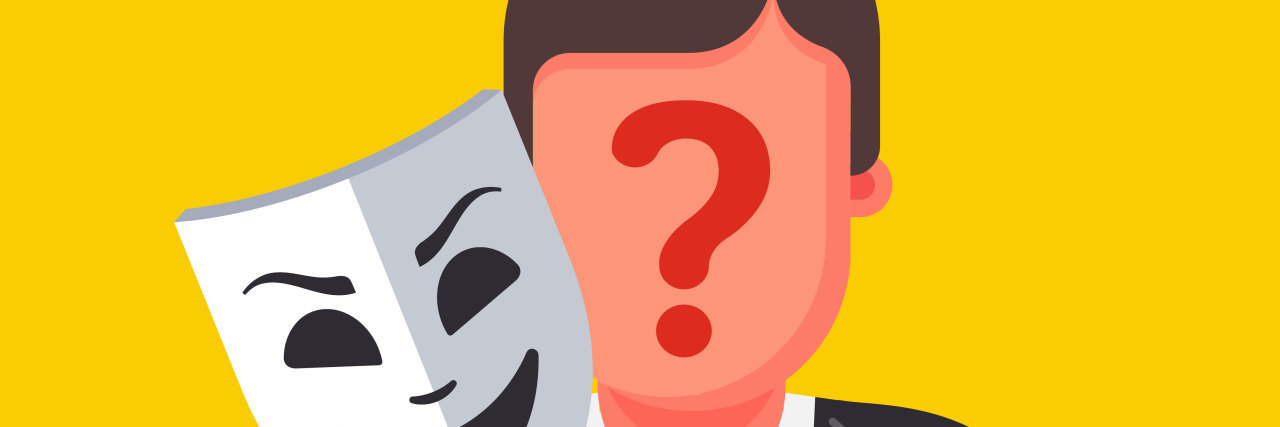The Difficulty of Identity and Belonging When You 'Pass'
I don’t look particularly queer, inasmuch as one can. If I’m not in my pajamas, I’m in a geeky t-shirt and a pair of jeans. The fun, wacky colors have mostly grown out of my cropped hair, which could almost pass as a pixie to those who want to read me as feminine. Much of my life, I didn’t even know I was queer. It wasn’t until well into my twenties that I realized I was demisexual — or maybe gray asexual; I wasn’t sure. Later, I came to the conclusion that I was heteroromantic, or no, maybe panromantic; after all, wasn’t I accepting of trans folx? Finally, I found out I was trans. I call myself transmasculine, but it might be something more like pangender or genderfluid; it’s not easy to connect with one’s true self, after all. It’s even harder to connect with others.
I don’t feel like I “belong” with binary trans folx. I don’t feel like I fit in with those who are non-binary, as I’m quite masculine and desire to transition (though, of course, I’m not the only one). I’m also afraid that admitting to being non-binary will somehow inhibit my ability to medically transition, or lessen my own “transness” — a pervasive, irrational fear I’ve had since discovering my true gender. I attend a lovely trans group with lovely trans individuals, but I don’t look much like them.
Though we are all unique, I don’t act much like them, either. My intersectionality often walls me off; makes me feel too “specific” for the more mainstream, but my “passability” makes me too vague for the specificity of my intersectionality. And to top it off, I’m afraid to put rainbows in my hair, to wear overt flags on my shirt, to act in ways that are clearly queer. I avoid conflict. Even with transitioning, passing is my goal, because I’m afraid of the psychological or physical violence I might incur if I do not. But, where does that leave me? I don’t “look queer,” but I certainly identify as queer.
I don’t look Latinx. I stay indoors at all times; I have no tan, no handsome olive undertones, no discernible accent. I stumble through what little Spanish I was able to pick up, as languages are my foible. I look, for all intents and purposes, Caucasian. I’m a third-generation American. We were raised, from the first generation to our own, to assimilate; Spanish spoken in the household was a grave offense. But I feel a connection to my culture. I love my heritage. My mother’s side is Mexican-Filipino, and my father’s side had no influence on my rearing, nor in my life. I grew up with cute colloquialisms, dedicated traditions, and a very strong focus on family. There are 10 people in my house, if that’s any indication.
“Sana, sana,” my grandmother would soothe in a lilting tone whenever we were sad or injured, half-recalling a rhyme from her childhood that always went unfinished. “Metiche,” she would say, hiding a laugh, when we misbehaved — whether we were busybodies or not. For New Year’s and Cinco de Mayo, we’d have chorizo overflowing with eggs, and menudo with loads of tripe and hominy. On a whim we’d have pancit made with spaghetti, because rice noodles were hard to come by in the States at the time; it was a recipe passed down from my grandmother’s father, who came by boat to America when he was 11 years old. She grew up poor, often with little more on the table than a few stray turnips. My grandfather was poor, too, but he tells few stories of it. I have, however, heard of the bullying, the racism, the sorrow.
I am the only one in my family, excluding my father, who “passes” as Caucasian. Could I find belonging with other Latinxs, reveling in our shared culture and history? That, I do not know. It would take some very open minds, wouldn’t it? I don’t look it, but I am Latinx. Some might disagree, but it is an irrevocable part of my identity, and I cling to it happily.
Without my cane, I don’t “look disabled.” Even with it, I’ve faced mistrust and doubt. I’m written off as lazy, taking advantage of the system, of others — I’m sure you’ve heard it all, fellow spoonies. But I am disabled. It is a core aspect of who I am, and I will not have it revoked just because I look differently than expected.
I don’t look autistic. I don’t look depressed. I don’t look traumatized, abused, or gaslit. The list goes on. You may not be able to see these aspects of my identity, but they are who I am regardless. And I hope that not only will others be able to see past the face of my passability, but that I will be able to recover from the guilt of having such privilege. Knowing that I’m not facing the same troubles as my siblings-in-arms, I feel a great weight on my shoulders. Nothing compared to what they face, of course, but it is a trouble all the same. We are dealt the cards we are dealt, and that’s life. I know I have to learn to accept that.
Nevertheless, I am Cole Elias, autistic, depressed, traumatized, Latinx transmasc pangender guy, and I belong.
Getty image by Viacheslav Besputin.

